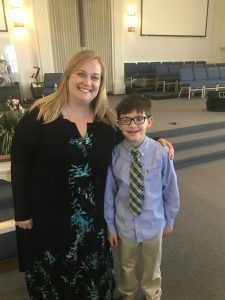 As founder of Whitlock Piano Studio, and as a teacher of music, I believe the following:
As founder of Whitlock Piano Studio, and as a teacher of music, I believe the following:
- Everyone, regardless of age or unique ability, is capable of making music successfully. With proper training and motivated practice, ANY student can learn to find fulfillment at the piano.
- Relationships are key to successful music study. As a teacher, my students need to know I am equally invested in them as artists and as human beings. Therefore, what might be perceived as student “chattiness” may actually be an important aspect of building the teacher-student bond.
- Music is a language, thus a form of communication. The music we make is often a reflection of what is going on in our lives. As such, open dialogue between students and teacher, parents and teacher, as well as students and parents, is incredibly beneficial to the learning process.
- The importance of art for the sake of art. While science continues to provide undeniable evidence for the MANY benefits of music study, we must not lose sight of the fact that enjoyment of music is a fundamental aspect of human nature, and the pursuit of making music simply for the joy of it is worthwhile in its own right.
- Musical studies foster more than creativity and entertainment. While keeping the above point in mind, the development of critical thinking, analysis, research, inquiry, and problem solving skills are all part of this training. With greater nationwide emphasis being placed on STEAM areas of education, it is important to recognize how proper musical training supports these systems of thinking.
- Natural abilities may help individuals achieve greater success, but this never occurs without focused effort. There is no substitute for time spent at the piano.
- Parents play a pivotal role in the success of young musicians. The amount of necessary parental involvement will vary by child and age, but every student needs to feel support, encouragement, and investment from their families throughout the week.
- Effective practice time involves a balance of discipline and enjoyment. Successful students focus their attention consistently throughout the week on all assigned material, but also spend time exploring music independently, in various styles that satisfy their musical curiosities.
